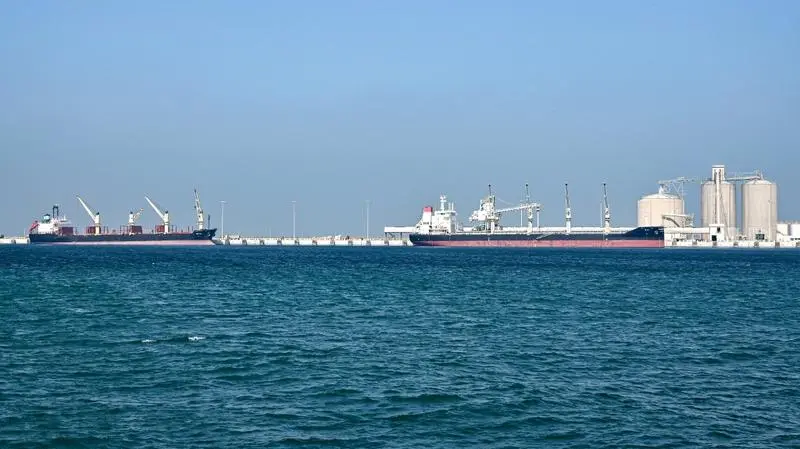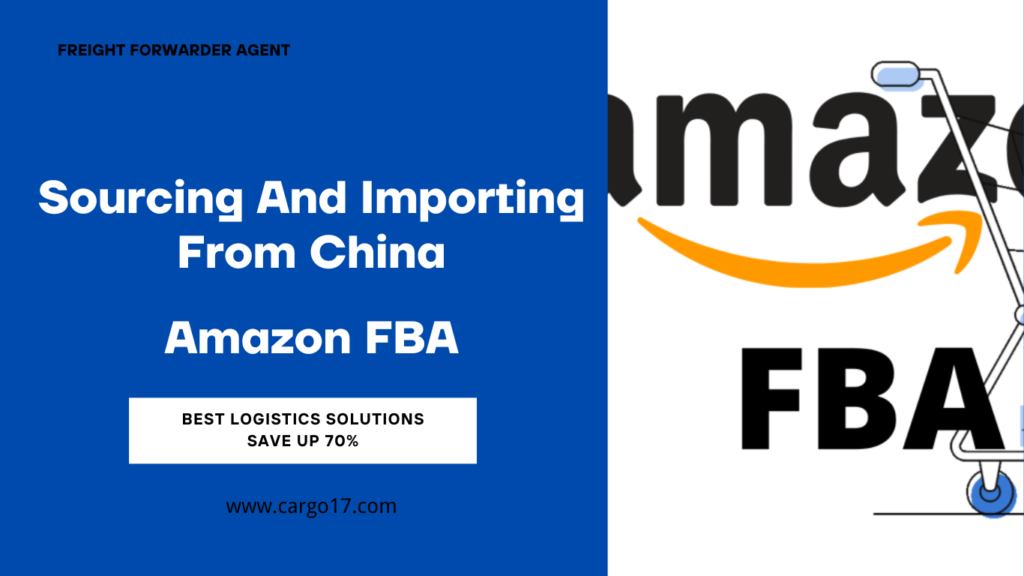shipping from China saudi arabia
A Comprehensive guide shipping from China to KSA
This guide equips you with all the information you need while shipping goods from China to the KSA.
- Importing goods from China, the country of origin must be marked on all goods, and each one need marked Made in China. The goods can be confiscated if there is no such mention.
- While you will find some variance in the transit times for freight shipped between China and the KSA, you will encounter much more in the range of cost options.
- You will get enough space even during peak season whether you ship by air or ship by sea.XCJD can ship your goods to Saudi Arabia by FCL, LCL, Roll on Roll off, etc based on your goods.
- It often takes 4 to 5 weeks to ship by sea. Arrange a pick up in any city of China, and let XCJD ship your goods by air with very competitive shipping rate, and delivery time takes 3 to 5 days
- China has state of the art airports all across the country. They offer convenient routes and major international connectives like shenzhen, shanghai, Beijing …
- The most popular city destinations in Saudi Arabia are Riyadh, Jeddah, Al Madinah, you can choose by air to the airport, by sea to the seaport, or by express to door free.
- XCJD provides professional services like goods packing, paperwork, loading and unloading, insurance, and more. Request a quick quote and reduce your shipping cost now
- XCJD has a presence in all the major countries of the world. We are uniquely positioned to provide excellent logistical support to your consignment right until its final destination.
Table of Contents
Process of shipping from China to Saudi Arabia:

We will begin by delineating the process of shipment in the following steps;
Packing:
After the production has finished or if no production was involved, the goods have been procured the process of packing begins. The goods are packed in standard export worthy packages or as requested by the buyer.
Pick up:
Once packing is done, the cargo is picked up by the authorized forwarder from the supplier’s warehouse. It is now headed for the seaport or airport as the case may be.
Delivery:
Once the cargo has reached the port it is delivered there and stored in the warehouse. It now awaits pick up by the vessel which could be a ship or the airplane.
Free warehousing:
The cargo is housed in the port’s warehouse for free. The free period lasts for 30 days. The goods are loaded onto the vessel much before the expiry of the free period.
Custom clearance:
At the port, goods are cleared by customs officials for onward shipment. They inspect the goods and check the accuracy of the shipping documents attached to the cargo. After levying the relevant tariffs goods are cleared for shipment.
Cargo Insurance:
At this step, the goods are also insured against unseen calamities. Usually, it is done against the invoice value attached to the cargo.
Cargo supervision:
At the port, the cargo is supervised by the port authorities against theft, mishandling, damage, and misuse. It is stored in a safe place under close surveillance.
Unloading and distribution:
After everything is said and done, the goods are eventually loaded on the vessel for their final destination. The goods are placed carefully in their designated space and sent off.
XCJD Logistics can help you in every step of the above processes. It has the knowledge and the manpower to execute these tasks and let the goods reach their destination safely.
Import items from China to Saudi Arabia:
Saudi Arabia imports a wide array of goods from China. In 2018 Saudi Arabia imported goods worth USD22 billion from China. These included the following;
- Electrical and electronic equipment
- Machinery, boilers and nuclear reactors
- Ships, boats and other floating structures
- Furniture and furnishings
- Textile garments
- Articles of iron and steel
- Edibles like fruits and vegetables
- Grains like rice
- Motor vehicles
Prohibited items in Saudi Arabia:
Saudi law prohibits the import of the following items;
- Weapons
- Alcohol
- Narcotics
- Pork and pork products
- Pornographic materials
- Distillery equipment
- Used or retreated tires
- Used clothing and certain sculptures.
- Saudi Customs also does not allow the import of cars more than five years old salvaged cars, used police cars, taxis, and rental cars.
- Certain items require special permission if you want to import them. These include agricultural seeds, live animals, books, periodicals, religious books, and tapes, etc.
Import requirements of Saudi Arabia:
The following are some of the chief requirements for import in Saudi Arabia;
- The importer should have a valid commercial import registration. His import activity should match the types of goods he intends to import. The Ministry of Commerce and Investment issues the import registration certificates.
- Original invoice (in triplicate) duly attested by the relevant trade authority of the exporting country.
- The invoice must mention the value, weight, description, and brand of the goods.
- A bill of lading or airway bill as the case may be.
- An insurance certificate if the goods are insured.
- A steamship certificate that mentions the name of the vessel, its nationality, it’s owner, the port of loading, and the ports it will touch en-route to Saudi Arabia.
- Certificate of compliance or conformity to the approved Saudi and International standards from the exporting country. It is called SASO CoC (Saudi Arabia Certificate of conformity)
- Certificate of origin of goods attested by the relevant chamber of commerce of the exporting country.
- An irremovable label showing the country of origin affixed on the imported commodities.
- In case of edible items their date of expiring should be prominently mentioned as well as their ingredients.
- For a certain type of goods, you have to submit their samples to the relevant government departments and ministries for approval before you embark on their import.
How to import goods from China to Saudi Arabia:

The process of import is similar to what it is for other countries. Once you have fulfilled the legal obligations meaning thereby you have the legal permit to import, you place an order to the Chinese company and send advance money. This is usually 30% of the total order value or as agreed upon between the importer and the exporter. You can transfer this money via bank TT or a letter of credit. When the goods are ready for shipment, you send the balance and direct the Chinese exporter to send your shipment to Saudi Arabia.
Custom regulations in Saudi Arabia:
Like any other country, the import of goods is subject to certain custom regulations in Saudi Arabia as well. We present some important regulations below;
- The importer of goods must be in Saudi Arabia at the time of clearance of goods by the customs.
- Consolidated and/or groupage shipments are not allowed in Saudi Arabia. Any violation of this is heavily fined.
- Shipments arriving in the country are subject to physical inspection by the customs authorities. This includes household goods and personal effects.
- Shipments are subject to local customs duty and/or taxes as the case may be.
- Shipments are valued locally and rates may vary according to the nature of the item.
- Packing lists must be prominently displayed on all containers showing the contents therein as well as the name and address of the importer.
- A full inspection of the goods will be carried out where no packing list is displayed.
- The country of origin must be marked on all goods. The goods can be confiscated if there is no such mention.
- For certain items, the clearance may be required from relevant government quarters and ministries. They will clear the goods after due inspection and quality checks.
Custom duty in Saudi Arabia:
- Most of the basic food and consumer items have no custom duty in Saudi Arabia. This includes items like wheat, rice, meat, sugar, tea, barley, unroasted coffee, cardamom, etc.
- An average custom duty of 4.85% (excluding agricultural products) is imposed on most of the items.
- To support the local industry, a customs duty of 20% is imposed on some items that are produced locally.
- The custom duties are generally valued Ad Valorem on the CIF value. For certain items, custom duty is imposed based on weight and measurements.
- Certain Arab and GCC member states with whom Saudi Arabia has signed bilateral trade agreements are given preferential and low tariffs to encourage regional trade.
HS Code in Saudi Arabia:
HS code system is prevalent all over the world. It stands for harmonized commodity description and coding system. It is an internationally recognized product nomenclature developed by the World Customs Organization. Saudi Arabia too recognizes this system and applies it.
How long does it take to ship goods from China to Saudi Arabia?
It depends largely on whether you want to opt for shipment by air or by sea. Cargo by sea can take several weeks before it reaches China. But if transported by air it can take a few days.
XCJD Logistics has a presence in all the major ports and trading hubs of both countries. It can pick your shipment from anywhere in China and devise the shortest and the most economical route for their onward transmission to Saudi Arabia.
Cargo by sea:

The transit time of ocean shipment from China to Saudi Arabia depends on the many factors like;
- Speed of the vessel
- Route and the stops en route.
- LCL or FCL shipment
- Custom clearance both at the ports of discharge and destination.
- Distance between the exact port of discharge and destination.
With so many factors at play, we cannot predict precisely how many days it takes for the cargo to reach Saudi Arabia from China. We can say that on average the transit time is around 20-40 days. We can summarize the transit time between famous ports of the two countries in tabular form below;
| Qingdao to Jeddah FCL | 36 days |
| Guangzhou to Dammam FCL | 20 days |
| Guangzhou to Dammam LCL | 42 days |
| Shanghai to Damam FCL | 30 days |
| Shanghai to Dammam LCL | 35 days |
Cargo by air:

Cargo by air reaches much faster and the transit time is usually of some hours. The rest of the time is in the process of customs clearance, freight consolidation/de-consolidation, and other such formalities. Typically, air cargo between cities of the two countries would take the following time;
| Shanghai to Dammam | 5 days |
| Shanghai to Riyadh | 5 days |
| Shanghai to Jeddah | 8 days |
| Guangzhou to Riyadh | 8 days |
| Guangzhou to Dammam | 8 days |
Freight forwarding from China to Saudi Arabia:

Many freight forwarders are operating in China and Saudi Arabia that provide cargo forwarding facilities. With the trade ties booming between the two countries their number will continue to grow. Let us now look at the air and sea freight services between the two countries.
Airfreight from China to Saudi Arabia:
Shipment by air is always going to be expensive. It is preferable only when you want quick delivery and the goods are perishable (flowers etc.) Otherwise, go for shipment by sea. Airfreight depends on the weight and volume of the item. It works where the product is low in weight and volume. Otherwise, it is not going to be very feasible. Usually, air freight can range between US$1-10/kg. The variation represents the distance of the two airports, the transit time, airline charges, and the nature of the product itself.
Airports in China:
China has state of the art airports all across the country. They offer convenient routes and major international connectives. Let’s take a look at some of the famous airports in China.
Pudong airport, Shanghai:
Shanghai is served by two airports. Pudong is the larger and busier one. It has excellent cargo handling facilities and was also awarded Air Cargo Excellence Diamond award by Air Cargo World in 2019. However, there are no direct flights between Shanghai and Saudi Arabian cities. You can fly via indirect routes.
Beijing:
Beijing Capital International Airport is China’s busiest airport and the second busiest in the world. Beijing is connected via air, road, and rail links with the rest of the country. It offers a convenient exit for your goods originating from the central and northern parts of the country.
Chengdu:
Chengdu is the fifth largest airport in China. It handles around 500,000 tonnes of air freight annually. Despite no direct flights, it provides good connectivity for handling your air cargo.
Qingdao:
Qingdao is a famous and busy airport in China. It will soon have a new and large airport which will increase its share of air cargo handling significantly.
Zhengzhou:
The capital of Henan province, Zhengzhou is ideally situated to handle your cargo requirements originating from central China and beyond. It is the 12th busiest airport in China.
Guangzhou:
Capital of the Guangdong province, Guangzhou’s airport can cater to your needs if your cargo is originating from the south of the country. It is serviced well by all the international airlines. It has direct links with Saudi cities as well.
Hangzhou:
For the industrial provinces of Zhejiang and Jiangsu, Hangzhou would serve you well if you have cargo n these provinces.
Other famous airports in China:
Besides these, other famous airports in China can handle your cargo very well. They include;
- Shenzhen
- Nanjing
- Ningbo
- Tianjin
- Wuhan
- Hong Kong
- Xiamen
- Xi’an
Airports in Saudi Arabia:
Saudi Arabia too has many modern and technologically advanced airports. They are situated around the country to serve the entire populace. We now take a look at a few of the more popular ones;
Kind Khalid International airport, Riyadh:
Riyadh is the capital of Saudi Arabia. Saudi Cargo operates a direct flight between Riyadh and Guangzhou. Riyadh can serve you well if your cargo is destined for the central and southern parts of the country.
King Abdul Aziz International airport, Jeddah:
Jeddah too is connected directly to Guangzhou. It serves the western parts of the country and the airport is well-equipped with modern amenities.
King Fahad International airport, Dammam:
Dammam caters to the east and Persian Gulf sides of the country. It is the third busiest airport in the country. If your final destination is Khobar, Qatif, Dhahran, etc. then Dammam would be your choice.
Sea freight from China to Saudi Arabia:
Shipments by sea are the more popular and preferred mode of transportation. They may take time but they are cost-effective and can handle large volumes and weights. The sea freight from China to Saudi Arabia varies and it depends on the factors we discussed above. Here, let’s have a look at some of the famous seaports of China.
Seaports in China
Shanghai:
It is the largest container port in the world having shallow and deep-water zones. Most of the shipments destined for Saudi Arabia leave from Shanghai. All the major shipping lanes of the world disembark at Shanghai and it is a major sea hub.
Shenzhen:
It is among the top five busiest ports in the world. Around 130 major shipping routes begin or end here. It is situated in the Kowloon peninsula and is divided into eastern and western parts for administrative purposes.
Ningbo-Zhoushan:
It is the fourth busiest container port in the world. It is reputed for its efficient container management and fast vessel turnaround. Large modern ships can easily dock here. With its proximity to the industrial provinces of Zhejiang and Jiangsu, you will find it to be very suitable for your cargo shipment.
Zhuhai:
Serving the southern parts, Zhuhai has 130 berth spaces. It is fast emerging as another major export gateway in China. Many importers are using it whose cargos originate in the south of the country.
Other major seaports of China:
Some other important seaports of China are;
- Guangzhou
- Xiamen
- Qingdao
- Tianjin
- Hong Kong
Seaports in Saudi Arabia:
We will now look at some major seaports in Saudi Arabia.
Jeddah Islamic Port:
Located in the Red Sea, Jeddah Islamic Port is the largest cargo port of Saudi Arabia and second-largest in the Arab world. Most of the shipments coming to and leaving from Saudi Arabia use Jeddah port. Spread over 12 square kilometers it can handle large vessels and heavy container loads.
King Abdul Aziz Port, Dammam:
Situated in the Persian Gulf and much smaller than Jeddah port, its location makes it an important port. Shipments arriving from the west of China would reach here faster. So, this port cuts on your transit time. If your consignment is destined for Riyadh or its adjoining areas Dammam would be a more logical preference.
Other ports in Saudi Arabia:
Other important seaports in Saudi Arabia include;
- Fahd Industrial Port, Jubal
- Jubal Commercial Port
- Riyadh Dry Port
Shipping charges from China to Saudi Arabia:

The shipping charges are always subject to negotiations and dependent on several variables. However, on average we can say that they start from US$15/CBM in case of an LCL shipment.
Express freight from China to Saudi Arabia:
If your consignment weighs around 35 kg or less neither air nor sea freight would be feasible for you. That’s when express freight comes into play. Both China and Saudi Arabia are serviced by major market players in this field. Let’s discuss a few of them below;
DHL shipping from China to Saudi Arabia:
DHL has its presence in both these countries and is very active there. It promises a reliable and efficient service. It can deliver your package from China to Saudi Arabia in 3-8 business days depending upon the nature of the package. You can also keep a track of the movement of your parcel online. The price ranges from US$1-3/kg. The tariff would fall with additional weight.
FedEx shipping from China to Saudi Arabia:
FedEx is another major international courier company. It too serves the length and breadth of the countries. The delivery time and tariff are similar to those of DHL.
UPS shipping from China to Saudi Arabia:
UPS is yet another international courier company. You can count on it for efficient and quick service. It has its presence in both China and Saudi Arabia and you can use it for package delivery.
EMS shipping from China to Saudi Arabia:
EMS is considerably cheaper than all the above options. However, it also takes longer to deliver than the above companies. If you do not require quick delivery then you can opt for EMS because of the lower tariff.
FCL shipping from China to Saudi Arabia:
FCL stands for full container load. When you have enough cargo to fill a container you opt for an FCL shipment. The containers can be of 20- or 40-feet dimensions. A 40-foot container can hold up to 15 pallets. In the case of FCL, a full container is booked in your name and sealed at the port of discharge. You won’t share container space with any other cargo. FCL shipment is easier to handle and is faster to execute because of no consolidation, de-consolidation process. It is also safe from damage and theft. You will be charged a flat rate depending upon the size of the container.
LCL shipping from China to Saudi Arabia:
While FCL is usually the preferred mode of cargo handling it is not always in your reach. In case your cargo won’t fill one container, you share the container space with a cargo of others. This is called LCL, or less than container load shipment. In LCL you are charged based on the total weight or dimensions of your consignment. LCL shipments may not be economical in some cases. You have to do your calculations prudently before going for LCL shipment.
At XCJD Logistics, we take care of both the LCL and FCL shipments. We charge very nominal rates for both these services. Our cut-off time is the shortest and transit time is also chosen considering the expediencies of international trade.
Door to door shipping from China to Saudi Arabia:
If you have to procure your goods from different sources spread out over a large area then you will have to hire the services of a forwarding agent. The forwarder will go to your given addresses to collect your goods and then store it in his warehouse. When all the goods have been collected, he will make an LCL or FCL shipment based on the volume of the goods. The forwarder will charge you for these services.
List of Shipping companies in Saudi Arabia:
The following are some of the famous shipping companies operating in Saudi Arabia.
- Worldwide shipping and freight services company
- Uniworld (Alam Mowahad Est)
- Basem International shipping and logistics co ltd
- Mohammad Rasheed Al Jehani Co & Sons
- Oriental Commercial and Shipping co ltd
- Mohammad Masud Al Khaldi Est.
- Topanab Trading Group
- Gulf Pacific Freight Logistics co
- JCB Arabia
- Sedres Maritime
- Zamil Offshore services co ltd
- Higgi group, Faisal M.
- Globe Marine Services Company
- Al-Minahli Trading Establishment
Custom clearance in Saudi Arabia:
The clearance of your goods by the customs authorities in Saudi Arabia is subject to strict rules and regulations. The authorities will make sure that you have complied with all the relevant laws and procedural formalities. The accompanying documents must be complete and accurate. SASO and all the relevant certificates must be presented. There have been instances when the authorities refused to clear the goods on small pretexts. It is therefore imperative that you follow all the rules and know and understand the import procedure to avoid any loss.
Custom clearance procedure in Saudi Arabia:
The process of customs clearance in Saudi Arabia can be broken down in the following steps;
Documents presentation:
Original shipping documents along with the relevant certificates and other required legal documents must be presented to the customs authorities when the goods reach the Saudi port.
Inspection:
The authorities will then minutely inspect the consignment. They will match it with the contents shown in the shipping documents. They will check the goods for any violation of the local law. If they find any objection, they can reject the entire consignment and refuse its entry in the country. If the goods belong to some special category, samples from it will be taken out and sent to relevant authorities for further checking and clearance.
Custom calculations:
After inspection, the goods are analyzed for custom duties calculation.
Classification:
The goods are then classified and categorized. This paves the way for the application of customs duty and other charges.
Payment of customs duty:
This is the final step where the goods are assessed for custom purpose and relevant duty is imposed. The importer is informed of the total customs duty and asked to pay it. After payment, goods are finally released and sent to the importer’s warehouse or the given address.
This is how the custom procedure takes place in Saudi Arabia.
Documents required for import:
The following documents are required for import in Saudi Arabia;
- Invoice
- Packing list
- Bill of landing
- Insurance certificate
- Certificate of conformity (CoC)SASO certificate
- SFDA Saudi Arabia
- Certificate of the country of origin






